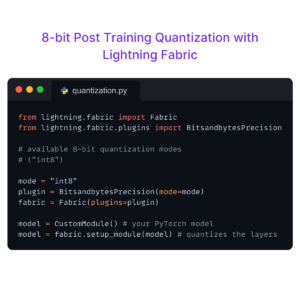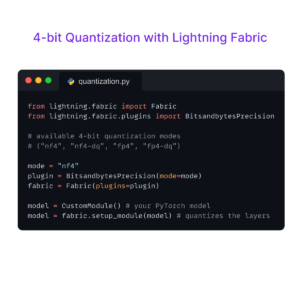Can intentionally poisoning web-scale training datasets be a practical approach to preventing risk? How can model predictions and their intended usage be better aligned? These are a few of the questions being poised by researchers this week. Spotify’s new AI DJ could be playing your next house party and Samsung’s mobile assistant could be answering your calls for you soon. Let’s dive in!
Research Highlights:
- Researchers from multiple orgs including Google introduced two new dataset poisoning attacks that intentionally introduce malicious examples to a model’s performance. The authors demonstrate how they might have poisoned 0.01% of the LAION-400M or COYO-700M datasets for just $60 USD by taking advantage of specific flawed trust assumptions. Their second approach, frontrunning poisoning, targets web-scale databases that frequently take snapshots of user-generated information, like Wikipedia, where an attacker only needs a time-limited window to inject harmful instances. The researchers alerted the dataset maintainers of each affected dataset to the assaults and offered potential low-cost countermeasures.|
- Researchers are demonstrating how early training with human preferences significantly minimizes unwanted language model behaviors, even those when being attacked adversarially, without degrading performance in the long run. The authors tested 5 pre-training with human feedback (PHF) objectives across three tasks including generating non-offensive text, text without personally identifiable information (PII), and PEP8-compliant Python code. They claimed that among the methods they investigated, conditional training—or learning distribution among tokens conditional on their human preference scores provided by a reward model—was the most straightforward and Pareto-optimal method. Their findings imply that, while pretraining LMs, we should move beyond imitation learning and, instead, take into account human preferences right away.
- Google researchers claim that policy gradient can be used to fine-tune vision models to maximize complicated metrics, such as mAP, PQ, or “color diversity,” after noticing significant performance gains on tasks including object identification, panoptic segmentation, and object recognition. The authors believe this approach has the potential to be widely useful for better aligning models with a diverse range of computer vision tasks.
ML Engineering Highlights
- As a new feature for its Bixby mobile assistant, Samsung has revealed the ability to answer calls using an AI-generated version of the user’s voice. With the help of the new “Custom Voice Creator,” users can record various sentences that Bixby can analyze and synthesize using artificial intelligence. On devices from the Galaxy S23 series, the feature is only at present available in Korean.
- A brand-new “DJ” feature from Spotify uses AI to curate your music and provide commentary on songs and artists. Based on data, the feature combines a selection of songs you might enjoy with an AI commentator who has “a stunningly realistic voice.” The company said the feature combines its existing personalization technology, generative AI through the use of OpenAI technology and an AI voice from its Sonantic acquisition.
Open Source Highlight
- Twitter’s algorithm may be open sourced ‘next week’ and gradually improved over the next few months, according to Elon Musk’s latest tweet. His remarks come at a time when, according to a report, Twitter’s rivals Mastodon and Tumblr have been exerting increasing pressure on the social media platform over the past few months.
Community Spotlight
Want your work featured? Contact us on Discord or email us at [email protected]
- This PR fixes an issue where, on a TPU pod with more than 1 host, the main process on non-master host would hang. You can read through the issue here, and the relevant merged PR here. Kudos!
- If you’re interested in contributing to Lightning (or any open-source project!), take a look at this opened GitHub issue. We really appreciate the way it highlights not only an issue or bug, but provides context, a potential solution, and additional information in a clean, readable way. Kudos!
- Last but not least, this currently open community-led PR is working to introduce a color option for the RichModelSummary header. Check out the relevant issue here!
Lightning AI Highlights
- Our CTO, Luca Antiga, was at Ai at Scale this week to talk about the future of foundation models like DALL-E and GPT-3. Take a look here and learn about how Lightning is working to shape the future of these revolutionary models.
- Transfer learning is a technique in the field of time series forecasting that enables fast predictions with a fraction of the typical computational cost. In industries like retail or fashion, where new items are constantly being launched into the market, companies look for ways to create accurate predictions for series with limited to no history. That’s where transfer learning comes in, enabling these “cold-start” predictions. Read on to learn how Nixtla uses Lightning to demonstrate the power of transfer learning techniques.
Don’t Miss the Submission Deadline
- IROS 2023 : International Conference on Intelligent Robots and Systems. Oct 1 – 5, 2023 (Detroit, Michigan). Submission deadline: March 1, 2023
- InterSpeech 2023: International conference on the science and technology of spoken language processing. (Dublin, Ireland). Submission deadline: Thu Mar 02 2023 03:59:59 GMT-0800
- CoLLAs 2023: 2nd conference on lifelong learning agents. (Montreal, Canada). Submission Deadline: Tue Mar 07 2023 03:59:59 GMT-0800
- ICCV 2023: International Conference on Computer Vision. Oct 2 – 6, 2023. (Paris, France). 1. Submission deadline: March 8, 2023 23:59 GMT

